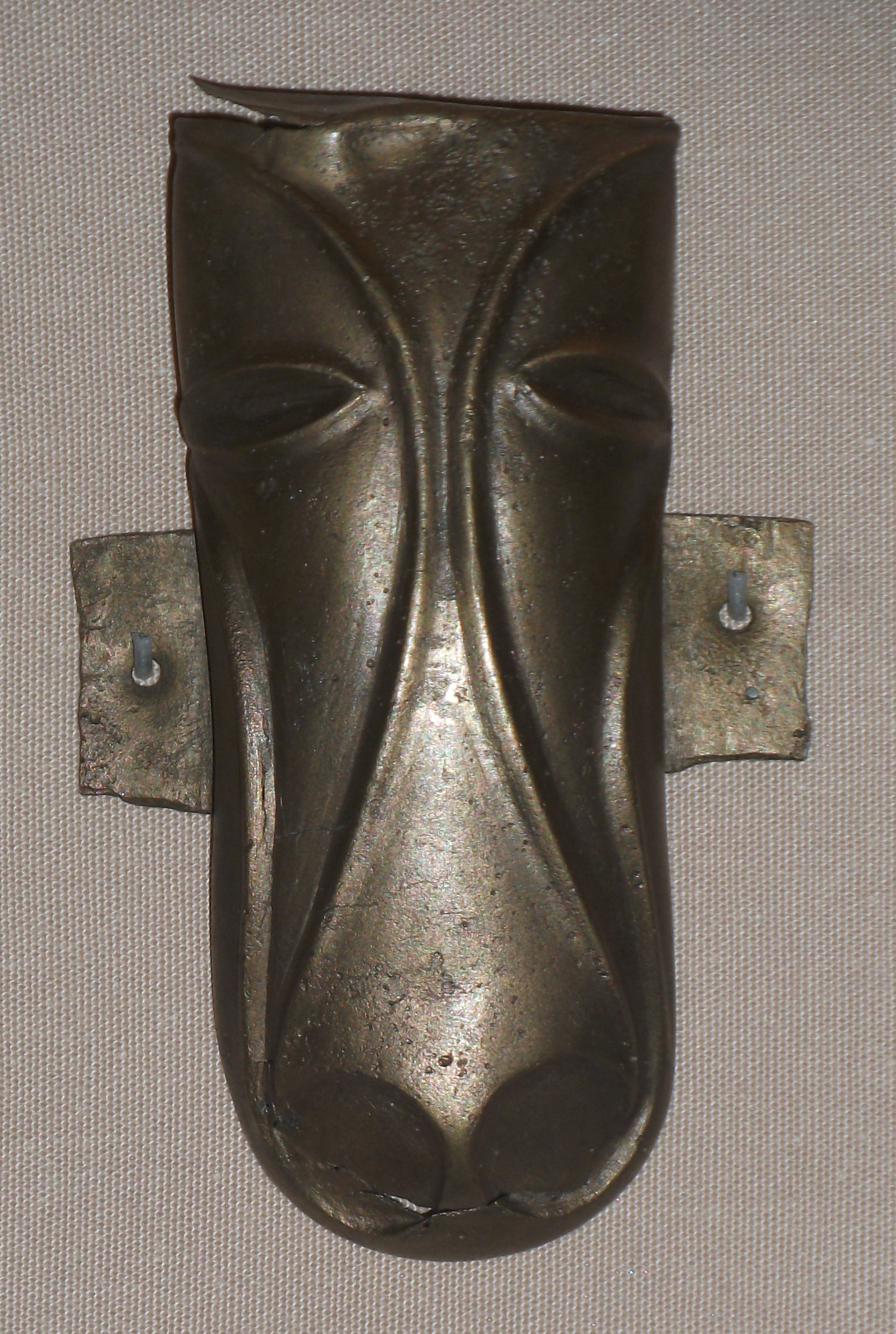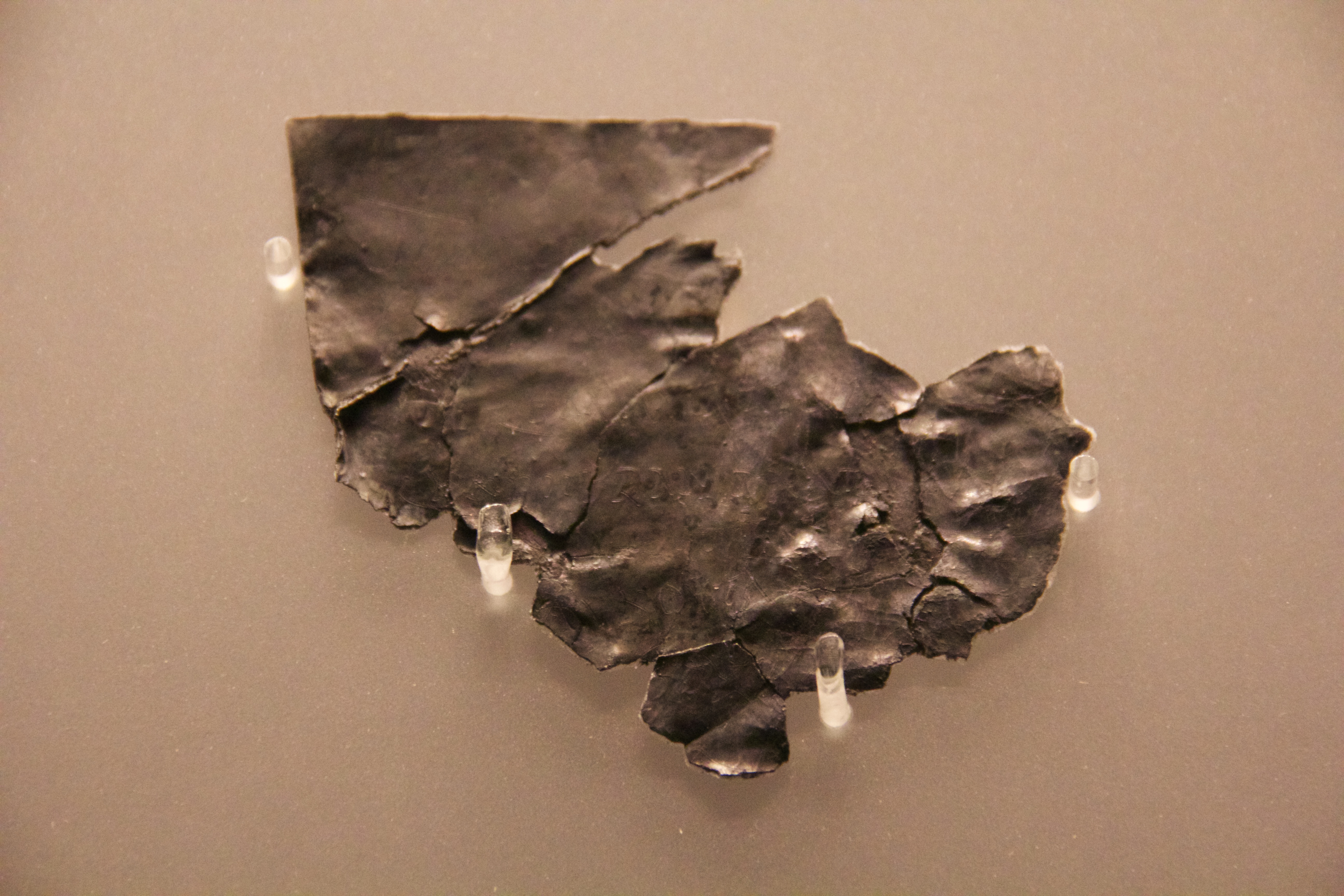|
Vellocatus
Vellocatus was a first-century king of the Brigantes tribe of northern Britain. He was originally armour-bearer to Venutius, husband of Cartimandua, the queen of the Brigantes and an ally of Rome. Some time after 51 AD Cartimandua split with Venutius, divorcing him and marrying Vellocatus and elevating him to kingship. Vellocatus appears to have been a member of the servant class, rather than a noble. According to Roman historian Tacitus "the royal house was immediately shaken by this disgraceful act", as many aristocrats would not accept a former servant as their king.Webster, Graham, ''Rome against Caratacus: The Roman Campaigns in Britain AD 48-58'', Batsford, London, 1993, p.90. The former king Venutius was able to gather followers, becoming an important figure in the resistance to Roman occupation. Venutius staged two revolts against Cartimandua, first in the mid-50s, which was defeated by the Romans, and again in 69, this time successfully. Cartimandua was rescued by the R ... [...More Info...] [...Related Items...] OR: [Wikipedia] [Google] [Baidu] |
Cartimandua
Cartimandua or Cartismandua (reigned ) was a 1st-century queen of the Brigantes, a Celtic people living in what is now northern England. She came to power around the time of the Roman conquest of Britain, and formed a large tribal agglomeration that became loyal to Rome. The only account of her is by the Roman historian Tacitus, through which she appears to have been widely influential in early Roman Britain. Her name may be a compound of the Common Celtic roots ''*carti-'' "chase, expel, send" and ''*mandu-'' "pony". History Although Cartimandua is first mentioned by Tacitus in AD 51, her rule over the Brigantes may have already been established when the Roman emperor Claudius began the organised conquest of Britain in 43: she may have been one of the eleven "kings" who Claudius's triumphal arch says surrendered without a fight. If not, she may have come to power after a revolt of a faction of the Brigantes was defeated by Publius Ostorius Scapula in 48. Being of "illustrious ... [...More Info...] [...Related Items...] OR: [Wikipedia] [Google] [Baidu] |
Brigantes
The Brigantes were Ancient Britons who in pre-Roman times controlled the largest section of what would become Northern England. Their territory, often referred to as Brigantia, was centred in what was later known as Yorkshire. The Greek geographer Ptolemy named the Brigantes as a people in Ireland also, where they could be found around what is now Wexford, Kilkenny and Waterford, while another people named ''Brigantii'' is mentioned by Strabo as a sub-tribe of the Vindelici in the region of the Alps. Within Britain, the territory which the Brigantes inhabited was bordered by that of four other peoples: the Carvetii in the northwest, the Parisii to the east and, to the south, the Corieltauvi and the Cornovii. To the north was the territory of the Votadini, which straddled the present day border between England and Scotland. Etymology The name ''Brigantes'' (Βρίγαντες in Ancient Greek) shares the same Proto-Celtic root as the goddess Brigantia, ''*brigant-'' meaning ... [...More Info...] [...Related Items...] OR: [Wikipedia] [Google] [Baidu] |
Venutius
Venutius was a 1st-century king of the Brigantes in northern Britain at the time of the Roman conquest. Some have suggested he may have belonged to the Carvetii, a tribe that probably formed part of the Brigantes confederation. History first becomes aware of him as husband of Cartimandua, queen of the Brigantes, in about 51 AD. After the British resistance leader Caratacus was defeated by Publius Ostorius Scapula in Wales, he fled north to the Brigantes, only to be handed over to the Romans by Cartimandua. While the Brigantes were nominally an independent kingdom, Tacitus says Cartimandua and Venutius were loyal to Rome and "defended by Roman power". However, after the capture of Caratacus, Venutius became the most prominent leader of resistance to the Roman occupation. Cartimandua had apparently tired of him and married his armour-bearer, Vellocatus, whom she elevated to the kingship in Venutius's place. Initially, Venutius sought only to overthrow his ex-wife, only later turni ... [...More Info...] [...Related Items...] OR: [Wikipedia] [Google] [Baidu] |
Common Brittonic
Common Brittonic ( cy, Brythoneg; kw, Brythonek; br, Predeneg), also known as British, Common Brythonic, or Proto-Brittonic, was a Celtic language spoken in Britain and Brittany. It is a form of Insular Celtic, descended from Proto-Celtic, a theorized parent tongue that, by the first half of the first millennium BC, was diverging into separate dialects or languages. Pictish is linked, likely as a sister language or a descendant branch. Evidence from early and modern Welsh shows that Common Brittonic took a significant amount of influence from Latin during the Roman period, especially in terms related to the church and Christianity. By the sixth century AD, the tongues of the Celtic Britons were more rapidly splitting into Neo-Brittonic: Welsh, Cumbric, Cornish, Breton, and possibly the Pictish language. Over the next three centuries it was replaced in most of Scotland by Scottish Gaelic and by Old English (from which descend Modern English and Scots) throughout most o ... [...More Info...] [...Related Items...] OR: [Wikipedia] [Google] [Baidu] |
Roman Britain
Roman Britain was the period in classical antiquity when large parts of the island of Great Britain were under occupation by the Roman Empire. The occupation lasted from AD 43 to AD 410. During that time, the territory conquered was raised to the status of a Roman province. Julius Caesar invaded Britain in 55 and 54 BC as part of his Gallic Wars. According to Caesar, the Britons had been overrun or culturally assimilated by other Celtic tribes during the British Iron Age and had been aiding Caesar's enemies. He received tribute, installed the friendly king Mandubracius over the Trinovantes, and returned to Gaul. Planned invasions under Augustus were called off in 34, 27, and 25 BC. In 40 AD, Caligula assembled 200,000 men at the Channel on the continent, only to have them gather seashells ('' musculi'') according to Suetonius, perhaps as a symbolic gesture to proclaim Caligula's victory over the sea. Three years later, Claudius directed four legi ... [...More Info...] [...Related Items...] OR: [Wikipedia] [Google] [Baidu] |
Roman Empire
The Roman Empire ( la, Imperium Romanum ; grc-gre, Βασιλεία τῶν Ῥωμαίων, Basileía tôn Rhōmaíōn) was the post-Republican period of ancient Rome. As a polity, it included large territorial holdings around the Mediterranean Sea in Europe, North Africa, and Western Asia, and was ruled by emperors. From the accession of Caesar Augustus as the first Roman emperor to the military anarchy of the 3rd century, it was a Principate with Italia as the metropole of its provinces and the city of Rome as its sole capital. The Empire was later ruled by multiple emperors who shared control over the Western Roman Empire and the Eastern Roman Empire. The city of Rome remained the nominal capital of both parts until AD 476 when the imperial insignia were sent to Constantinople following the capture of the Western capital of Ravenna by the Germanic barbarians. The adoption of Christianity as the state church of the Roman Empire in AD 380 and the fall of the Western ... [...More Info...] [...Related Items...] OR: [Wikipedia] [Google] [Baidu] |
Tacitus
Publius Cornelius Tacitus, known simply as Tacitus ( , ; – ), was a Roman historian and politician. Tacitus is widely regarded as one of the greatest Roman historiography, Roman historians by modern scholars. The surviving portions of his two major works—the Annals (Tacitus), ''Annals'' (Latin: ''Annales'') and the Histories (Tacitus), ''Histories'' (Latin: ''Historiae'')—examine the reigns of the Roman emperor, emperors Tiberius, Claudius, Nero, and those who reigned in the Year of the Four Emperors (69 AD). These two works span the history of the Roman Empire from the death of Augustus (14 AD) to the death of Domitian (96 AD), although there are substantial Lacuna (manuscripts), lacunae in the surviving texts. Tacitus's other writings discuss Public speaking, oratory (in dialogue format, see ''Dialogus de oratoribus''), Germania (in Germania (book), ''De origine et situ Germanorum''), and the life of his father-in-law, Gnaeus Julius Agricola, Agricola (t ... [...More Info...] [...Related Items...] OR: [Wikipedia] [Google] [Baidu] |
Histories (Tacitus)
''Histories'' ( la, Historiae) is a Roman historical chronicle by Tacitus. Written c. 100–110, its complete form covered c. 69–96, a period which includes the Year of Four Emperors following the downfall of Nero, as well as the period between the rise of the Flavian dynasty under Vespasian and the death of Domitian. However, the surviving portion of the work only reaches the year 70 and the very beginning of the reign of Vespasian. Together, the ''Histories'' and the ''Annals'' amounted to 30 books. Saint Jerome refers to these books explicitly, and about half of them have survived. Although scholars disagree on how to assign the books to each work, traditionally, fourteen are assigned to ''Histories'' and sixteen to the ''Annals''. Tacitus' friend Pliny the Younger referred to "your histories" when writing to Tacitus about the earlier work. By the time Tacitus had completed the ''Histories'', it covered Roman history from AD 69, following Nero's death, to AD 96, ... [...More Info...] [...Related Items...] OR: [Wikipedia] [Google] [Baidu] |
Briton Rulers
British people or Britons, also known colloquially as Brits, are the citizens of the United Kingdom of Great Britain and Northern Ireland, the British Overseas Territories, and the Crown dependencies.: British nationality law governs modern British citizenship and nationality, which can be acquired, for instance, by descent from British nationals. When used in a historical context, "British" or "Britons" can refer to the Ancient Britons, the indigenous inhabitants of Great Britain and Brittany, whose surviving members are the modern Welsh people, Cornish people, and Bretons. It also refers to citizens of the former British Empire, who settled in the country prior to 1973, and hold neither UK citizenship nor nationality. Though early assertions of being British date from the Late Middle Ages, the Union of the Crowns in 1603 and the creation of the Kingdom of Great Britain in 1707 triggered a sense of British national identity.. The notion of Britishness and a shared Britis ... [...More Info...] [...Related Items...] OR: [Wikipedia] [Google] [Baidu] |





